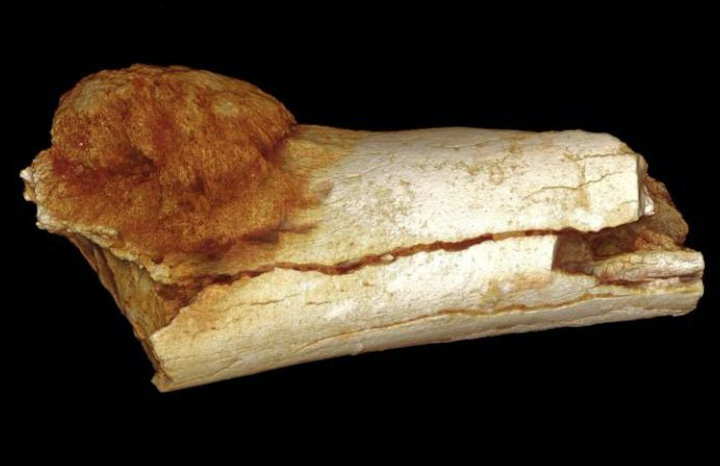
The study, which was recently published in the South African Journal of Science, details the discovery by paleontologists of a benign tumor in a sample taken from a 12 or 13-year-old boy that is nearly 2 million years old. And more incredibly still, the researchers unearthed a malignant tumor on a little-toe bone of a 1.7 million-year-old left foot. This latest discovery has completely upended previous assumptions about the longevity of cancer — the oldest discovered human cancer cell before this point was between 780,000 and 120,000 years old.
The tumor was discovered by way of new method known as micro-CT imaging. In essence, this technique allowed researchers to examine detailed 2D and 3D images of the insides of the fossil, including the density differences in the bone. They discovered a “distinctive, cauliflower-like external appearance,” National Geographic reports, which helped the team ultimately diagnose the tumor as osteosarcoma. Study co-author Edward Odes noted that researchers compared the image of the fossil to that of a modern biopsy, and concluded, “It was bingo.”
The University of the Witwatersrand professor continued, “Modern medicine tends to assume that cancers and tumors in humans are diseases caused by modern lifestyles and environments, but our studies show the origins of these diseases occurred in our ancient relatives millions of years before modern industrial societies existed.”
So eat paleo all you want, folks. But sadly, it looks like our ancestors suffered from the same afflictions we do.
“The evidence is out there that these conditions have been with us a long time and we’ve been kind of hoodwinked that cancer is a modernity,” said Patrick S. Randolph-Quinney, study co-author and a professor as the University of Central Lancashire. “These things are ancient.”
He continued, “The takeaway is the notion that cancer is a huge continuous problem in the developed world. Even if we have very healthy, perfect lifestyles we still have the capacity for cancer. It is an inherent part of our evolutionary process.”


